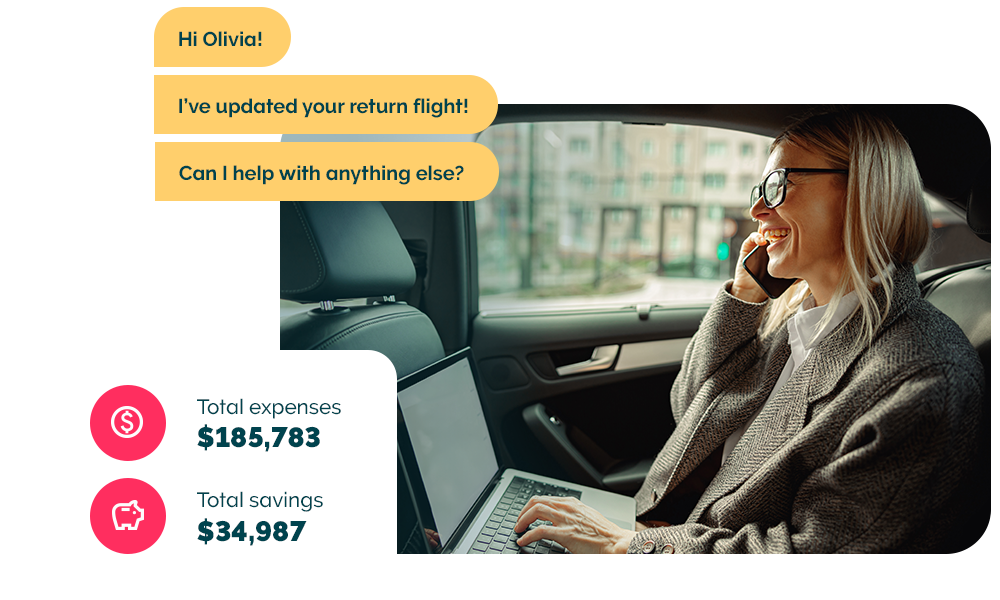How to work out business travel expenses
The organisation of business travel is complex, with many moving parts. For those new to the world of business travel, or perhaps established SME that travel now and then, managing travel expenses is challenging – it’s an area of business travel that almost everyone struggles with.
You may also be interested in..

It's time for better business travel management.
With the perfect balance of modern travel technology and dedicated experts, you really can have the best of both worlds.
- Dedicated travel consultant
- Intuitive all-in-one travel platform
- Search, book, and report in minutes
- 24/7 emergency support & live chat
- Traveller tracking & duty of care dashboard
- Exclusive Deals, negotiated rates, and more!
About Flight Centre Travel Group
The Flight Centre Travel Group is one of the world’s largest travel retailers and corporate travel managers. The company, which is headquartered in Brisbane, Australia, has company-owned leisure and corporate travel business in dozens of countries, spanning Australia, New Zealand, the Americas, Europe, the United Kingdom, South Africa, the United Arab Emirates, and Asia. ASX listed Flight Centre Travel Group (FLT) also operates the global FCM corporate travel management network, which extends to more than 100 countries through company-owned businesses and independent licensees, along with Corporate Traveller, the flagship business specific to the small-to-medium-sized enterprise sector. For more information, visit fctgl.com.



